 Jessica McCoy. Department of Engineering and Environmental Sciences, Northumbria University, Newcastle upon Tyne, UK. jessica.mccoy@northumbria.ac.uk
Jessica McCoy. Department of Engineering and Environmental Sciences, Northumbria University, Newcastle upon Tyne, UK. jessica.mccoy@northumbria.ac.uk
Jessica McCoy is a 2nd year NERC-funded ONEPlanet PhD student, based at Northumbria University and Newcastle University. Their thesis focuses on the Oligocene-Miocene palaeoreconstruction of the northwest edge of Europe.
![]()
 Martha E. Gibson. Department of Geology and Geography, West Virginia University, Morgantown, West Virginia, USA and PetroStrat, Parc Caer Seion, Conwy, UK. Martha.Gibson@petrostrat.com
Martha E. Gibson. Department of Geology and Geography, West Virginia University, Morgantown, West Virginia, USA and PetroStrat, Parc Caer Seion, Conwy, UK. Martha.Gibson@petrostrat.com
Martha E. Gibson is a Lindemann Trust Research Fellow at West Virginia University. Her expertise lies in Cenozoic palaeobotanical-based climate reconstruction and Euramerica Palaeozoic palynology.
![]()
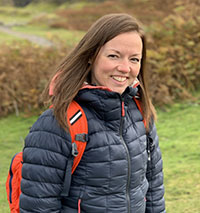 Emma P. Hocking. Department of Engineering and Environmental Sciences, Northumbria University, Newcastle upon Tyne, UK. emma.hocking@northumbria.ac.uk
Emma P. Hocking. Department of Engineering and Environmental Sciences, Northumbria University, Newcastle upon Tyne, UK. emma.hocking@northumbria.ac.uk
Emma P. Hocking is an Associate Professor in the Department of Geography and Environmental Sciences at Northumbria University. She completed a BSc degree in Geography at Durham University, MSc in Quaternary Science at Royal Holloway, and then her PhD in Antarctic sea-level change from Durham University. Her research focuses on reconstructing environmental change on a range of geological timescales and in a variety of environments, including tidal marshes, isolation basins, lakes, and peatlands. Emma has worked on a range of research projects across the world, tied together by the methodological approach of using diatom analysis, in combination with sedimentology and geochronology. These include reconstruction of great earthquake and tsunami history in south-central Chile, reconstructing lake mixing regimes in Finland, and reconstructing past human impacts on neotropical landscapes including the Brazilian savannah and Amazonia.
![]()
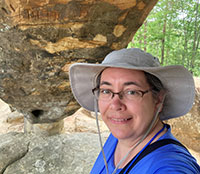 Jennifer M.K. O’Keefe. Department of Physics, Earth Science and Space Systems Engineering, Morehead State University, Morehead, Kentucky, USA. j.okeefe@moreheadstate.edu
Jennifer M.K. O’Keefe. Department of Physics, Earth Science and Space Systems Engineering, Morehead State University, Morehead, Kentucky, USA. j.okeefe@moreheadstate.edu
Jen O’Keefe is a Professor of Geology and Science Education at Morehead State University in eastern Kentucky, USA. She runs the OPaL Lab, which focuses on training high school and undergraduate students to answer a wide variety of questions about past ecosystems and climates and environmental issues using palynology, organic petrography, and geochemistry, as well as pollen typing of local and regional honey samples. An award-winning palynologist, organic petrographer, and geoscience educator, Dr. O’Keefe is keenly interested in fungal paleoecology, wetland ecosystems and organic matter preservation from the Cretaceous-Neogene, melissopalynology, and improving processing techniques.
![]()
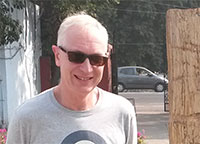 James B. Riding. British Geological Survey, Keyworth, Nottingham, UK. jbri@bgs.ac.uk
James B. Riding. British Geological Survey, Keyworth, Nottingham, UK. jbri@bgs.ac.uk
James B. Riding is an Emeritus researcher at the British Geological Survey, Nottingham, UK. He is a palynologist specialising on the Mesozoic and Cenozoic. Jim’s PhD was awarded by the University of Sheffield, and his research interests include dinoflagellate cysts, forensic palynology, the geology of the Peak District, the history of palynology, preparation techniques, and provincialism. He has been the Managing Editor of the journal Palynology since 2004.
![]()
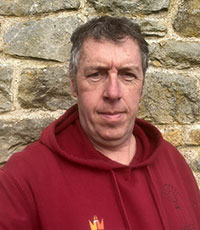 Raymond Roberts. Natural Resources Wales, Chester Road, Flintshire, UK. raymond.roberts@cyfoethnaturiolcymru.gov.uk
Raymond Roberts. Natural Resources Wales, Chester Road, Flintshire, UK. raymond.roberts@cyfoethnaturiolcymru.gov.uk
Raymond Roberts is Lead Specialist Advisor (Geodiversity) for Natural Resources Wales (NRW) and has more than 25 years’ experience in geoconservation. He is the national NRW lead responsible for policy and advice on geodiversity issues across Wales. The main thrust of the work is the protection of Wales’ geological heritage through the conservation, management and interpretation of Geological Conservation Review sites, RIGS and UNESCO Global Geoparks. Previous publications include work on deep-sea Ostracoda following his MSc and more recently on the geoconservation and management of natural resources at Brymbo Fossil Forest.
![]()
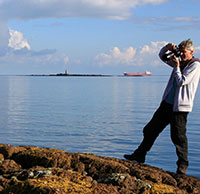 Stewart Campbell. Natural Resources Wales, Chester Road, Flintshire UK. stewart.campbell@cyfoethnaturiolcymru.gov.uk
Stewart Campbell. Natural Resources Wales, Chester Road, Flintshire UK. stewart.campbell@cyfoethnaturiolcymru.gov.uk
Stewart Campbell has a longstanding interest in Quaternary studies. His principal research was on the nature and origin of Pleistocene deposits in South Wales, especially west Gower. Using amino-stratigraphy, radiocarbon dating, Scanning Electron Microscopy and other analytical techniques, his work documented new discoveries on west Gower and their implications for LGM ice limits and the chronology of glacial and interglacial events (published in Nature & Proceedings of the Geologists’ Association). Most of his career has been in geoconservation, and he was the lead author of the first and 14th volumes of the Geological Conservation Review Series (Quaternary of Wales & Quaternary of South-West England), both of which document sites critical to understanding the long-term, pre-Pleistocene evolution of the landscape of south-west Britain. He set up and ran an Earth Science department in the Countryside Council for Wales (now NRW), which was responsible for documenting and conserving the most important geological and geomorphological sites in Wales. His recent research interests include the geology and geomorphology of Anglesey in connection with his work for Anglesey’s UNESCO Global Geopark – GeoMôn.
![]()
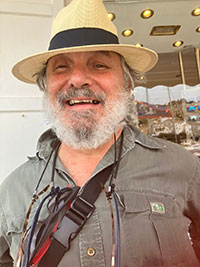 Geoffrey D. Abbott. School of Natural and Environmental Sciences, Newcastle University, Newcastle upon Tyne, UK. geoff.abbott@newcastle.ac.uk
Geoffrey D. Abbott. School of Natural and Environmental Sciences, Newcastle University, Newcastle upon Tyne, UK. geoff.abbott@newcastle.ac.uk
Geoffrey D. Abbott is a Reader in Organic Geochemistry in the School of Natural and Environmental Sciences, Drummond Building, Newcastle University. He has about four decades of research experience applying molecular geochemical, biogeochemical, and analytical pyrolysis techniques to address major questions related to the Earth’s environment from the analysis of organic carbon in land plant fossils, dinosaur eggshells and bones as well as microplastics. His research combines detailed laboratory experiments on organic geochemical processes with studies of the carbon cycle in ancient and modern environments (specifically Arctic marine sediments, northern peatlands, and soils).
![]()
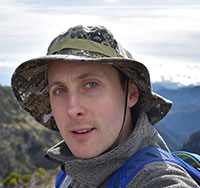 Matthew J. Pound. Department of Engineering and Environmental Sciences, Northumbria University, Newcastle upon Tyne, UK. matthew.pound@northumbria.ac.uk
Matthew J. Pound. Department of Engineering and Environmental Sciences, Northumbria University, Newcastle upon Tyne, UK. matthew.pound@northumbria.ac.uk
Matthew Pound is an associate professor at Northumbria University whose research focuses on palynology and past climates of the Cenozoic.

